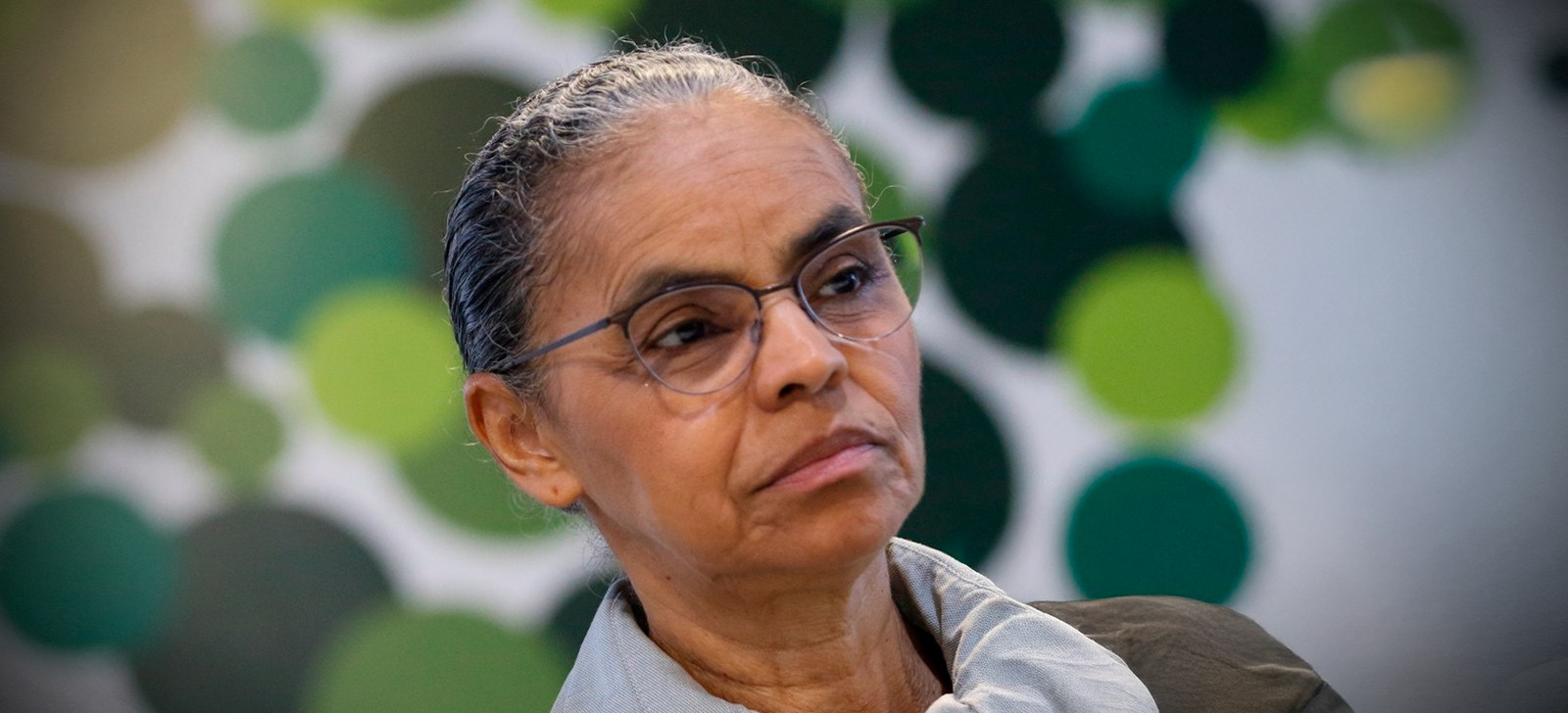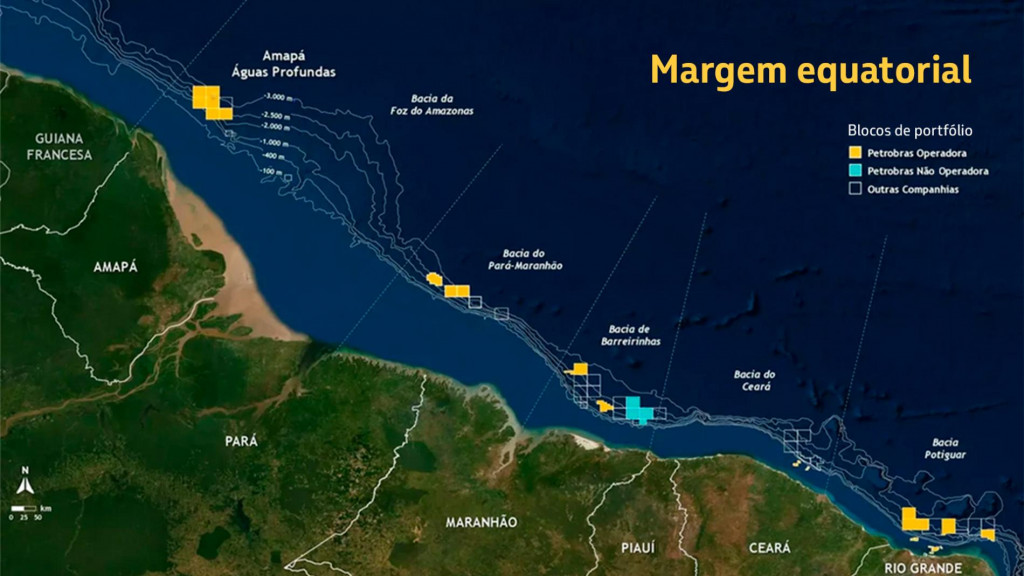Decision on licence to explore Equatorial Margin is not political, says environment minister
07 de April de 2025

By Ana Cláudia Leocádio – From Cenarium
BRASÍLIA (DF) – The decision on licensing for oil exploration in the Equatorial Margin region is not a political decision to be taken between the Ministers of Mines and Energy, Alexandre Silveira, and the Minister for the Environment and Climate Change, Marina Silva, but rather an analysis carried out by the technical team of the Brazilian Institute for the Environment and Renewable Natural Resources (Ibama). The statement was made by Marina last Thursday, the 3rd, when asked about a date to meet with her ministerial colleague to discuss the matter.
There had been expectations of a meeting between the two ministers later this week, but the minister said that due to numerous engagements abroad, and now in Brazil, new arrangements must be made to schedule another date.
Petrobras is awaiting Ibama’s licence for oil exploration in the region, near the State of Amapá, but must first comply with certain stages of the licensing body’s analysis, in addition to meeting environmental conditions.

On Monday, the 31st, the president of the state-owned company, Magda Chambriard, announced that she expects the Ibama licence for the Pre-Operational Assessment (APO) this month. This assessment simulates an oil spill and constitutes the final stage required by Ibama for the licensing process. Only after this procedure can the body proceed with its analysis. The APO is expected to last two months.
According to Marina Silva, matters relating to Petrobras’ licensing to explore oil in the Equatorial Margin are being monitored by a Situation Room established within the Civil House. This new front of oil exploration has been a priority of the Lula Government and now hinges on the wait for the environmental licence.
“The process is being analysed by Ibama, and the body is carrying out its technical evaluation across the different instances responsible for licensing,” said the minister. “But obviously, the decision is not a political one between me and Minister Alexandre. It is a decision that will be taken by Ibama which, in this case, is the licensing body, along with its president,” she added.
What is the Equatorial Margin
According to Petrobras, the Equatorial Margin is located between the States of Amapá and Rio Grande do Norte and is the newest Brazilian exploratory frontier in deep and ultra-deep waters, being considered the new “pre-salt” due to the characteristics of the oil and the estimated volumes. “Recent oil discoveries off the coasts of Guyana, French Guiana and Suriname have shown the exploratory potential of the region, located near the Equator, known as the Equatorial Margin,” the company explains on its website.
The region extends for over 2,200 kilometres along the coast. The state-owned company further reports that it has already drilled more than a thousand wells in the Equatorial Margin, with the first one—carried out to investigate potential—located more than 160 kilometres from the nearest point on the coast and over 500 kilometres from the mouth of the Amazon River.
Recently, Brazil had its continental shelf extended beyond the 200 nautical miles (around 300 kilometres) of the Exclusive Economic Zone, which consists of a stretch of sea over which Brazil holds internationally recognised rights.
The decision to expand was taken by the Commission on the Limits of the Continental Shelf (CLCS) of the United Nations (UN), between February and March of this year, granting an area of 360,000 square kilometres, in a process that began in 2024. With this, Brazil gained the right to explore the so-called Equatorial Margin.

